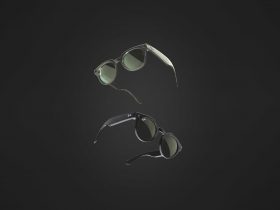- Have you ever pointed towards the fragmentation in the market regarding devices and services, or even the complexity of IoT, and questioned how concepts like the connected home could be adopted on a widespread scale?
- Microsoft’s Office suite is a connected service on IoT, Apple’s ecosystem is IoT to the core, and even your late model vehicle is likely connected to IoT in some way.
- In the consumer world, IoT is simply the reality of all your devices being connected; from your game console, to your cellular phone, the computer in your office and on your coffee table, and even your automated home lighting, air conditioning, and garage door.
- Data capabilities, the decreasing cost of hardware, and the widespread adoption of the internet have made IoT possible for consumers, businesses, and large organizations across the world.
- As a consumer, you’re probably already using IoT today.
Have you ever pointed towards the complexity of IoT, and questioned how concepts like the connected home could be adopted on a widespread scale?
@IoTRecruiting: #InternetOfThings is No Longer a Futuristic Concept #IoT #IoE #IIoT #AI #BigData #BlockChain #Fintech #DeepLearning
When you read or hear about the Internet of Things (IoT), do you imagine that we’re not quite in an age where such a concept is able to be fully realized? Have you ever pointed towards the fragmentation in the market regarding devices and services, or even the complexity of IoT, and questioned how concepts like the connected home could be adopted on a widespread scale?
If you’re still questioning IoT at this point, then it’s possible that you’re simply not looking closely enough. Many of the products and services that you’re using are already a part of IoT.
Microsoft’s Office suite is a connected service on IoT, Apple’s ecosystem is IoT to the core, and even your late model vehicle is likely connected to IoT in some way. In the consumer world, IoT is simply the reality of all your devices being connected; from your game console, to your cellular phone, the computer in your office and on your coffee table, and even your automated home lighting, air conditioning, and garage door.
IoT as a concept was first described over 20 years ago by researchers at MIT. They spoke of a future where devices and sensors would collect and share data. There’s a reason why it is a buzzword today. Data capabilities, the decreasing cost of hardware, and the widespread adoption of the internet have made IoT possible for consumers, businesses, and large organizations across the world.
As a consumer, you’re probably already using IoT today. Your smartphone can connect to your home PC and control it remotely. You can set schedules for you Cable PVR and arrive home to your favorite programs already recorded and ready to play. You can even strap a smart device to your wrist while you jog, while also collecting data on your heart rate, the calories you’ve burnt, and even map a GLONASS or GPS tracked route of where you went.
You can then upload that data to the cloud and retrieve it later. You can share it with other people. You could even send the information to your personal trainer who can observe and advise around your exercise regime. This is what the Internet of Things is all about. For consumers, it’s all about the power of information.
IoT makes life easier. Progression has been gradual, and in many ways low key. This may be why many haven’t noticed it happening. When you used to collect your mail, there was one place where you could do it; your mailbox. Today, your mailbox is anywhere that you go, as long as you have a connected device. We used to bank inside buildings. ATM’s came later, and they increased the convenience. Today you can bank from a smartwatch. You can make payments with an NFC chip without swiping plastic. You can transfer your money from account to account from a Smartphone or PC.
The Internet of Things has provided countless advantages to society. From smarter automated manufacturing, to biometric implants in critical care patients, IoT does more than the average person knows. Perhaps the fact that we already use IoT without even knowing it, is testament to how important, influential, and firmly embedded IoT is in our lives today.







Laissez une réponse
Commentaires